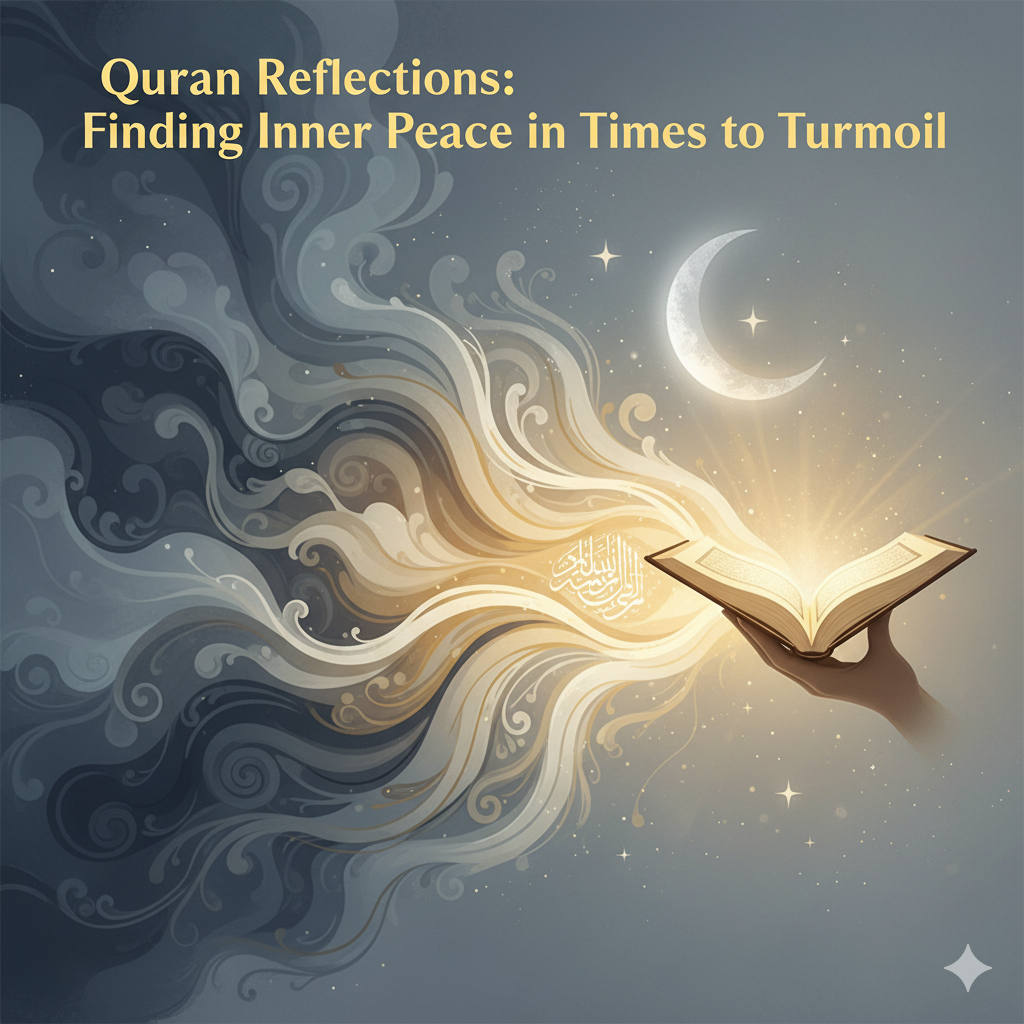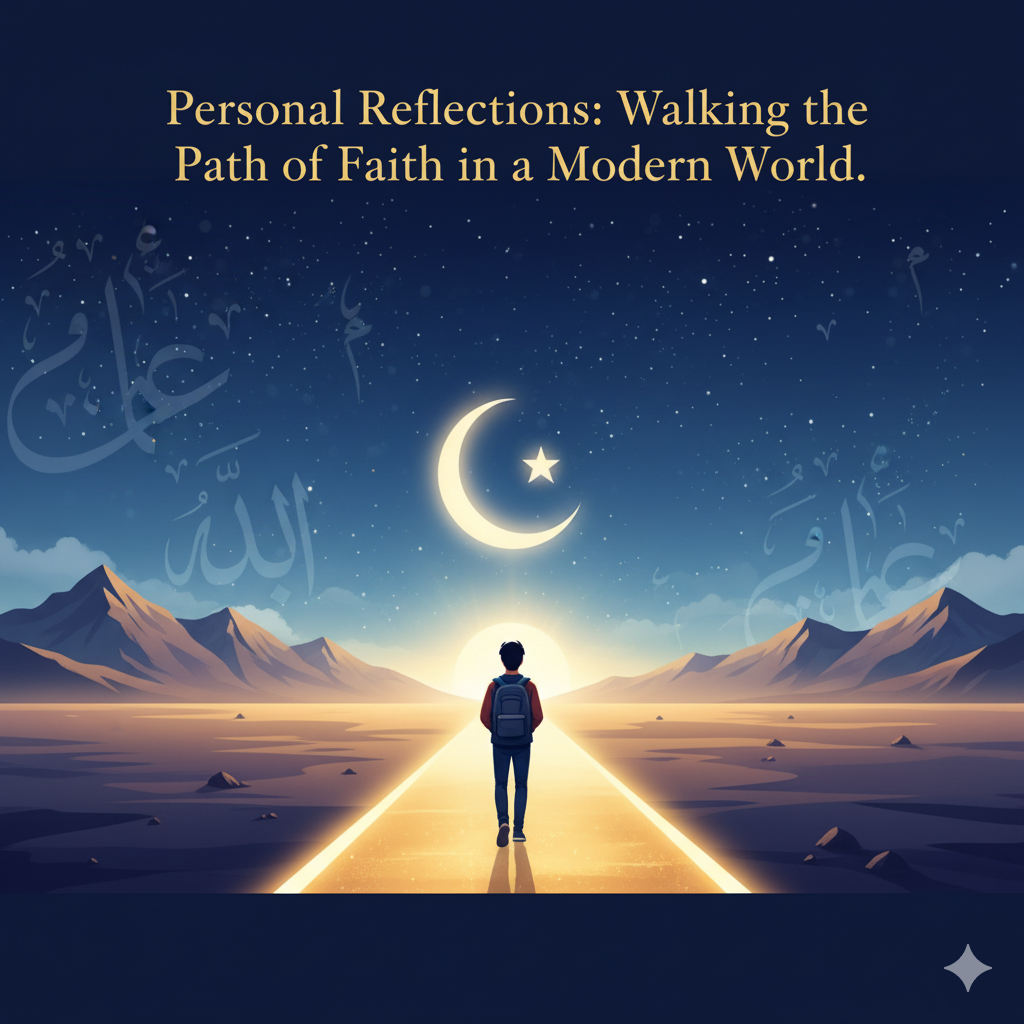The Qur’anic Call to Remind
Allah’s command is clear:
“And remind, for indeed, the reminder benefits the believers.” (Surah Adh-Dhariyat 51:55)
The Qur’an itself is a reminder—every verse, every story, every law is designed to bring our hearts back to their natural state of submission. The Prophet ﷺ embodied this, constantly reminding his companions not just with words, but through his actions, his compassion, and his unwavering patience.
Why Our Hearts Need Reminders
Our hearts are like gardens. Left unattended, weeds of arrogance, impatience, and forgetfulness grow quickly. Reminders are like rain and sunlight, nurturing faith and pulling out those weeds before they choke our souls.
We forget not because we are bad, but because we are human. Allah created us with this weakness so we may constantly return to Him, seeking His mercy. Without reminders, we risk believing that our worldly life is permanent, when in truth, it is only a brief station before the eternal journey.
Types of Reminders That Shape the Heart
1. Reminders Through Words
A verse recited, a hadith shared, or even a simple text message that says “Don’t forget to pray” can change the direction of someone’s day. Words enter the ears, but sincere reminders reach the heart.
2. Reminders Through Actions
Sometimes no words are needed. Watching someone give charity quietly, seeing a stranger smile despite their struggles, or observing a friend lower their gaze—all these are reminders. They silently echo: “This is how faith looks in action.”
3. Reminders Through Trials
Hardships themselves are reminders. Illness reminds us of health. Loss reminds us of gratitude. Failure reminds us of humility. Every trial is a wake-up call from Allah: “Return to Me, for I am your refuge.”
Small Reminders, Big Impact
Morning Gratitude: Waking up and saying Alhamdulillah for life is a daily reminder that not everyone received the same gift that morning.
Prayer Times: Each adhan is a reminder, not just to pray, but to pause worldly concerns and prioritize Allah.
Before Sleep: Whispering Astaghfirullah before closing our eyes reminds us that our day was imperfect but Allah’s mercy is vast.
It is in these small, consistent reminders that great transformations occur.
The Beauty of Giving Nasihah
The Prophet ﷺ said:
“Religion is nasihah (sincere advice).” (Muslim)
But nasihah is not lecturing. It is advice given with love, humility, and sincerity. A reminder that humiliates or belittles loses its value. A reminder that uplifts and encourages becomes a seed of change.
When giving reminders:
When Reminders Arrive Unexpectedly
Sometimes reminders find us in moments we least expect. A line from a khutbah suddenly feels personal. A child’s innocent words pierce the heart. Even nature itself—rain after drought, the silence of a starry night—can whisper reminders of Allah’s majesty.
The heart must remain open, for reminders are everywhere.
Common Reminders That Strengthen Faith
“This too shall pass.” Hardships are temporary, but so are blessings. Don’t be arrogant in ease, nor despair in difficulty.
“Allah knows.” Even if no one sees your struggles, Allah knows. This reminder brings peace to the unseen battles of life.
“Death is near.” Not to scare, but to awaken. Every breath is one less until we meet Allah.
“Gratitude multiplies blessings.” Remembering Allah in thanks ensures our blessings don’t become burdens.
The Balance: Reminding Without Overwhelming
While reminders are beautiful, balance is necessary. Too much, too often, or too harshly can push people away. The Prophet ﷺ would space out his advice so that the companions did not become weary.
A good reminder is like water for a thirsty plant—not too little, not too much, but just enough to nourish.
Becoming a Living Reminder
The highest form of nasihah is to live as a reminder yourself. A believer whose character reflects honesty, patience, kindness, and humility becomes a walking reminder of Allah. Without speaking, their presence whispers: “Faith is beautiful.”
A Personal Note
There was a time when I felt overwhelmed by life’s demands, drowning in work and losing touch with prayer. Then, one day, I received a short message from a friend: “Don’t forget Asr.” Just three words. But they pulled me out of heedlessness and reminded me that no task is greater than standing before Allah.
That single reminder became a turning point. It was a moment of realizing how something so small can ignite great change.
Conclusion
Reminders are not interruptions—they are lifelines. They revive hearts, protect faith, and keep us tethered to our Creator. In giving reminders, we heal others, and in receiving them, we heal ourselves.
As believers, our duty is to remain both students and teachers of reminders: always learning, always sharing, always echoing the call that leads us closer to Allah.
Let us leave with this final reminder: “So remind, for indeed the reminder benefits the believers.”
 हिन्दी
हिन्दी








